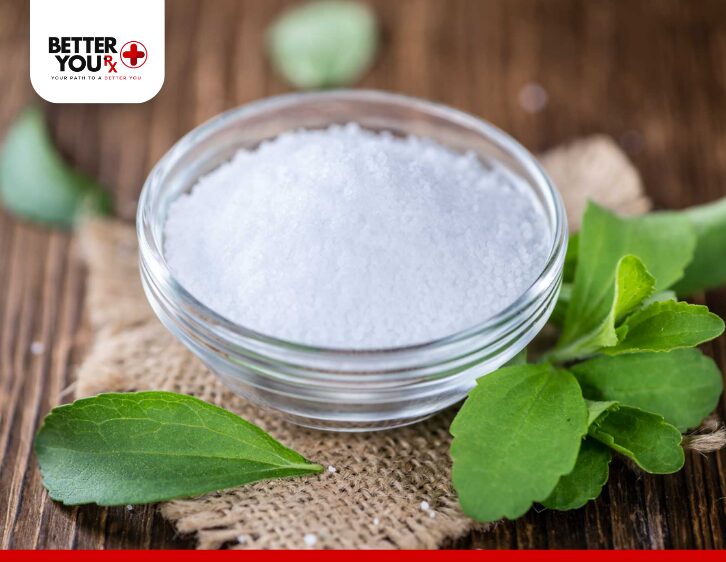How Mushrooms Can Help Manage Blood Sugar and Improve Insulin Sensitivity
Managing blood sugar levels is an essential aspect of maintaining overall health, particularly for those dealing with diabetes or pre-diabetes. Insulin sensitivity plays a key role in regulating blood sugar, and there are various ways to improve it naturally. One such approach is through the consumption of mushrooms. These humble fungi offer more than just a delicious addition to meals; they may help with blood sugar regulation and enhance insulin sensitivity. In this article, we’ll explore how mushrooms can play a role in supporting metabolic health, along with how you can add them to your diet.
What Are Blood Sugar and Insulin Sensitivity?

Before we dive into the specifics, it’s helpful to understand what blood sugar and insulin sensitivity are. Blood sugar (or glucose) is the body’s main energy source, and it comes from the food we eat. After consuming food, especially carbohydrates, our blood sugar levels rise. In response, the pancreas releases insulin, which helps our cells absorb glucose and use it for energy. However, when the body becomes resistant to insulin (a condition known as insulin resistance), blood sugar levels can rise, and over time, this can lead to type 2 diabetes.
Improving insulin sensitivity is essential for managing blood sugar effectively. The more sensitive our cells are to insulin, the better they can absorb glucose, keeping blood sugar levels stable. For people who want to prevent or manage diabetes, improving insulin sensitivity is a crucial goal—and that’s where mushrooms come into play.
How Mushrooms Help Regulate Blood Sugar
Mushrooms have gained attention not just for their culinary versatility but also for their potential health benefits. Here’s how they might help manage blood sugar and improve insulin sensitivity:
Beta-Glucans and Insulin Sensitivity
Beta-glucans, a type of soluble fiber found in mushrooms, are key to their blood sugar-regulating properties. These fibers have been shown to improve insulin sensitivity by helping the body respond more effectively to insulin. Popular mushrooms like shiitake, maitake, and reishi are rich in beta-glucans, making them particularly beneficial for those looking to improve their insulin response.
Low Glycemic Index for Stable Blood Sugar
Mushrooms are also low on the glycemic index (GI), meaning they release glucose into the bloodstream more slowly compared to higher-GI foods like sugary snacks or refined carbohydrates. This slow-release effect helps to keep blood sugar levels stable, which is especially important for people managing diabetes. By including low-GI foods like mushrooms in your meals, you can prevent those dreaded blood sugar spikes and crashes.
Anti-Inflammatory Effects
Inflammation is another factor that can negatively impact insulin sensitivity. Chronic inflammation is often associated with insulin resistance, making it harder for the body to process glucose. Luckily, certain mushrooms like reishi and turkey tail are known for their anti-inflammatory effects. By reducing inflammation, these mushrooms help support healthy insulin function and improve blood sugar regulation.
Antioxidants and Blood Sugar Protection
Moreover, mushrooms are packed with antioxidants, which help fight oxidative stress in the body. Oxidative stress occurs when free radicals damage cells and tissues, including those involved in insulin function. By neutralizing free radicals, antioxidants found in mushrooms may protect the body’s ability to regulate blood sugar levels.
Best Types of Mushrooms for Blood Sugar Management

Not all mushrooms are created equal when it comes to blood sugar management, but certain varieties stand out for their ability to support insulin sensitivity and lower blood sugar:
- Shiitake Mushrooms: These tasty mushrooms are loaded with beta-glucans and other compounds that help regulate blood sugar. They also provide other nutrients like vitamin D, which supports overall health.
- Maitake Mushrooms: Known for their ability to lower blood glucose, maitake mushrooms have been widely studied for their benefits in managing type 2 diabetes and improving insulin sensitivity.
- Reishi Mushrooms: While reishi is often celebrated for its immune-boosting properties, it also offers benefits for managing blood sugar. Studies suggest reishi may help reduce blood sugar levels by addressing inflammation and oxidative stress.
- Cordyceps Mushrooms: Famous for boosting energy levels, cordyceps also promote healthy glucose metabolism, which can improve insulin sensitivity and help regulate blood sugar.
- Lion’s Mane Mushrooms: Known for their cognitive benefits, lion’s mane mushrooms also offer potential benefits for improving blood sugar regulation, particularly through their anti-inflammatory effects.
Incorporating Mushrooms into Your Diet

Adding mushrooms to your diet is simple, and there are many ways to incorporate them into your meals:
- Fresh Mushrooms: Add sautéed or sliced mushrooms to salads, soups, pasta, or stir-fries.
- Mushroom Powder: Medicinal mushroom powders (like maitake or reishi) are a convenient way to add mushrooms to smoothies, coffee, or teas.
- Supplements: If you prefer a concentrated form of mushrooms, many supplements are available in capsules or tablets, offering a quick and easy way to get the benefits.
Additional Health Benefits of Mushrooms
In addition to their blood sugar-regulating benefits, mushrooms offer a wealth of other health advantages. Many varieties, like maitake and shiitake, have immune-boosting properties, and mushrooms in general are rich in essential nutrients like potassium, vitamin D, and B vitamins. Some types of mushrooms, such as reishi, may even help improve heart health by reducing cholesterol levels and supporting circulation.
Conclusion
While mushrooms offer a natural and nutritious way to support blood sugar management, it’s always important to approach your health journey with a holistic mindset. Combining the health benefits of mushrooms with a balanced diet, regular physical activity, and proper medical guidance can lead to better overall health and improved insulin sensitivity.
Better You Rx offers a range of wellness products, including natural supplements, that could support your health journey as you work toward better managing your blood sugar. When making significant changes to your diet or introducing new supplements, always consult with a healthcare professional to ensure they’re right for you.
Mushrooms provide a delicious and accessible way to support blood sugar management and improve insulin sensitivity. Whether you enjoy them fresh in a dish or prefer their powdered form, adding mushrooms to your diet is an easy, natural way to improve your metabolic health.





